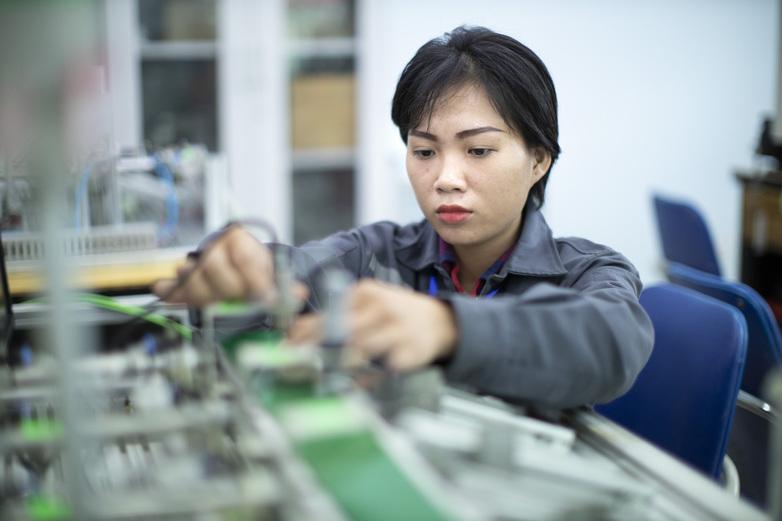Context
The United Nations estimates that international migrants totalled approximately 304 million people worldwide in 2024. Almost half of them are women and nearly two thirds are migrant workers. In view of this, the importance of migration in terms of development policy has increased significantly in recent years.
Labour migration therefore needs to be safe, regular, controlled, and development-driven. In this project, countries of origin and destination share responsibility equally and work together as partners.
Objective
There are strong partnerships between Germany and selected cooperation countries for gender-based, development-driven vocational training and labour migration. These partnerships ensure that migration adds value for migrants and for the countries of origin and destination.
Approach
The project creates new avenues for fair, regular migration for trainees and skilled workers. It establishes partnerships between vocational training centres in the cooperating countries and companies in Germany.
The cooperation benefits all involved:
Vocational education and training in the cooperating countries is more international.
Experts from Germany impart expertise in the cooperating countries.
German companies have better access to skilled workers and trainees in the cooperating countries as a result of their participation.
Tension in the labour markets in the cooperating countries can potentially be relieved.
Young school leavers and prospective migrants in the cooperating countries have better job prospects on local and international labour markets.
